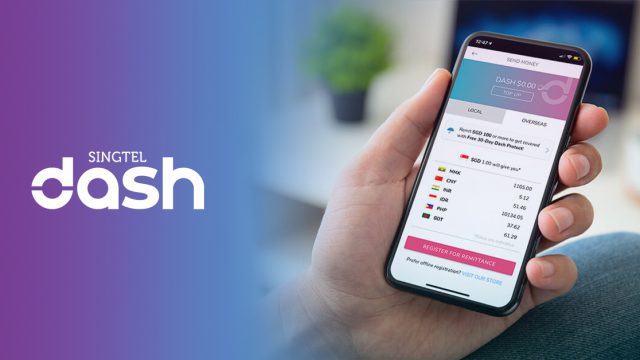The coronavirus pandemic has unravelled the very fabric of day to day life.
As governments across the world implement strict quarantine measures to circumvent the spread of the devastating COVID-19 disease, consumers and businesses alike struggle to adapt to the new normal. Though it no longer seems so simple to just run out to the shops to purchase necessities, we are already beginning to see some companies rising to meet the challenge.
One such company is Singtel’s Dash mobile wallet, which has since announced a number of initiatives aimed at easing the burdens placed on their customers’ and partners’ shoulders as a result of the coronavirus pandemic.
Dash was launched in 2014, around the time digital wallets were beginning to take off in Southeast Asia. It provides users with a range of payment, lifestyle and financial services regardless of telco or banking relationships. The app currently boasts over a million registered users and is available for both Apple and Android users. In 2019, Frost & Sullivan Asia-Pacific named Dash the Mobile Wallet Provider of the Year.
Dash waives remittance fees for migrants
In a mobile and globalised world, remittance services are absolutely key for migrant communities. Singapore’s migrant community is particularly large: a recent United Nations report showed that as much as 40% of Singapore’s population are migrants, the majority of whom are Malaysians though there are significant migrant populations from China, Indonesia, Pakistan and Bangladesh.
Over the years, Dash has steadily increased its remittance network, and users are now able to remit to seven countries in the region: Bangladesh, China, India, Indonesia, Malaysia, Myanmar and Philippines.
When social distancing and stricter measures were introduced to prevent the spread of COVID-19, the foreign worker community in Singapore faced great strain. In line with this, Dash introduced a series of initiatives aimed at supporting the community.
Some of these initiatives at the start of the strict “circuit breaker” measures in April were the waiving of fees for first-time remittances as well as for healthcare workers. Dash also provided complimentary COVID-19 insurance coverage to those who made remittances of S$100 and above.
“During these uncertain times, we understand how important it is for migrant workers to be able to stay connected or send money to loved ones. We recognise that many of our remittance customers are the sole breadwinners in their families, and we want to rally behind them by relieving some of the burden they face in these challenging circumstances,” said Arthur Lang, CEO of Singtel’s International Group, in a recent statement.
Singtel enhances remittance offering to China
Dash has also recently expanded its remittance services for Chinese users through a brand-new tie-up with Alipay, signalling broader ambitions to strengthen its presence in the region.
Chinese consumers have had a meaningful influence on how financial technologies have evolved to meet real world problems. Home to one of the largest unbanked populations in the world, China has led the retail payment revolution with the widespread use of digital wallets and QR codes. Today, digital payments dominate everyday transactions in China.
In its 2019 Migration and Development Brief, the World Bank found that global remittances totalled US$689 billion in 2018, with China being the second-largest remittance recipient at US$67 billion. Given these figures and China’s propensity for digital payments, digital remittance offers huge opportunities.
Through the aforementioned Alipay tie-up, Dash now allows Chinese migrants working and living in Singapore to make near-instantaneous digital money transfers directly to their beneficiaries. Users need only log an Alipay-registered mobile number in the Dash app. With a click of a button, Dash customers can send money directly to their beneficiaries’ Alipay-linked bank account, all without a single trip to the traditional remittance houses.
Conclusion
It will be hard to say precisely how life will return to any semblance of the normal we enjoyed before the COVID-19 outbreak. However, we are already getting a taste of the many innovations that could help society get back on its feet.
Consumers and businesses were steadily embracing the new services offered by fintechs and digital-first startups, the pandemic merely sped everything up. As noted by the World Economic Forum, contactless digital payments have proven to be an effective strategy in keeping economies running while helping people reduce contact with the virus. In our new normal, mobile remittance services are absolutely crucial to helping everyone stay safe by reducing exposure to crowds.







